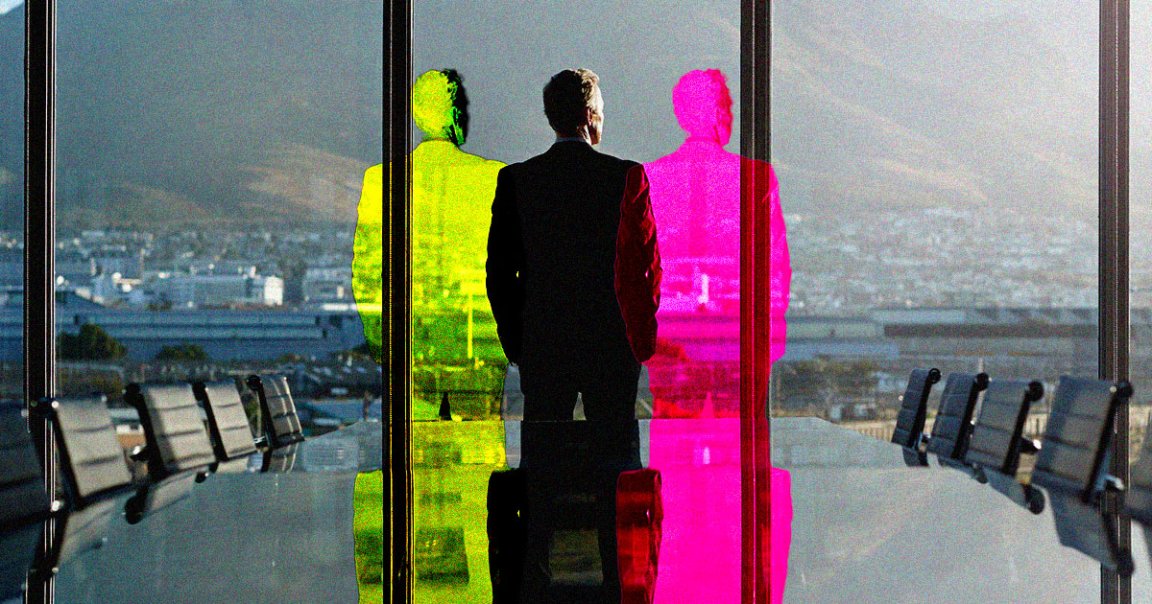
CEOs are increasingly turning to artificial intelligence tools to create avatars of themselves that can deal with mundane tasks — like attending high stakes media interviews on their behalf, for example.
A slew of AI startups with names like Personal AI, Delphi, and Tavus are scrambling to court executives who will let them train models — on stuff like keynote speeches, interviews, and meeting transcripts — to create a digital CEO double.
“It’s common for people across the company to have questions for the CEO, but he doesn’t have time to answer them all,” Jean Yves Couput, senior advisor to footwear company Salomon CEO Guillaume Meyzenq, told The Information.
With the help of San-Francisco-based startup Personal AI, Meyzenq trained an AI chatbot to answer his staffers’ annoying questions about company culture, mission, and strategy, per Couput.
“Now, they can ask his ‘digital brain’ and get an answer immediately,” he said.
But The Information also alluded to problems, saying the team was currently working on “reducing the chatbot’s hallucinations.” And as Axios found, the CEO chatbots are plagued by familiar issues as they spout braindead hallucinations, with all the apparent authority of a company CEO.
Case in point, when reporter Megan Morrone asked the digital clone of Dara Ladjevardian, co-founder and CEO of AI cloning platform Delphi, whether its human counterpart had access to their chat, it erroneously said no.
Ladjevardian told Morrone that it was due to a “bug.” No kidding.
In other words, once you cut through the hype, it turns out the bots are stuck in the same gray area as virtually all enterprise attempts to deploy AI: they can rattle off stuff that sounds authoritative, but you have to double check it all to make sure it’s not totally wrong about the basics.
“For now it’s kind of a novelty,” AI coding startup Bolt CEO Eric Simons told The Information. “This thing won’t be doing one-on-ones with my employees yet, but it’s good enough to handle some public facing roles and we’re actively looking into other ways to use it.”
It’s an especially interesting reality given the conversation the possibility of replacing executives with AI in the long run. Last year, experts told the New York Times that chatbots may not only replace lower-rung workers, but they could shake up executive suites as well.
“The change delivered by AI in corporations will be as great or greater at the higher strategic levels of management as the lower ranks,” former IBM senior consulting partner Saul Berman told the NYT at the time.
A stunning 47 percent of several hundred CEOs and other executives surveyed in 2023 by Harvard and MIT said the role of CEOs should be completely automated by AI.
A separate survey conducted by IT consulting firm AND Digital similarly found that almost half of business leader respondents said they believed AI could take their jobs.
But currently, the reality falls way short of the hype, with AI avatars of CEOs spreading confusion among company employees and the public.
Then there’s the optics of extremely well-paid chief executives offloading their work in the first place. AI job automation has unsurprisingly proven extremely unpopular with the public, with Duolingo CEO Luis von Ahn, for instance, facing massive public backlash for boasting that his company was replacing human contractors with AI.
By dumping their workload onto their digital doubles, CEOs could send the wrong signal.
“It could risk sending messages either to the public or to their employees that there is a lack of accountability at the very top,” social scientist and AI researcher Julie Carpenter told Axios.
“It’s sort of widening that gap between executive privilege, technical privilege and the precarity of laborers,” she added.
More on CEOs and AI: People Are Becoming Obsessed with ChatGPT and Spiraling Into Severe Delusions